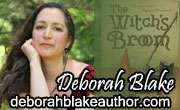Pagan Studies
Pagan Scholar seeks to examine particular topics within Paganism through the various lenses of philosophy.
Also, I make goofy vlogs and review books.
Formerly, A Pagan Aesthetic.
Ch. 3 The Rhetoric of Wicca Summary
By making this video Im ultimately inviting the scorn of all internet Pagans to rise up and object. Etymology is a touchy subject for some Pagans, which is exactly what this chapter of Her Hidden Children explores. Some will defend the proposed ideas that certain words mean certain things, and you know what?
That's totally ok.
What we're looking at here is the scholarship published by Clifton regarding how historians and linguists view the topic, not colloquial or common place understanding. If you disagree with the proposed etymologies, please please comment below. This is a summary of one scholars work. Supplementary, or even contrary and opposing views are welcome to enrich the conversation. So without further ado, Ch. 3 "The Rhetoric of Wicca" in which we think about the words Pagan, Witch, and Wicca.
Comments
-
Please login first in order for you to submit comments

















